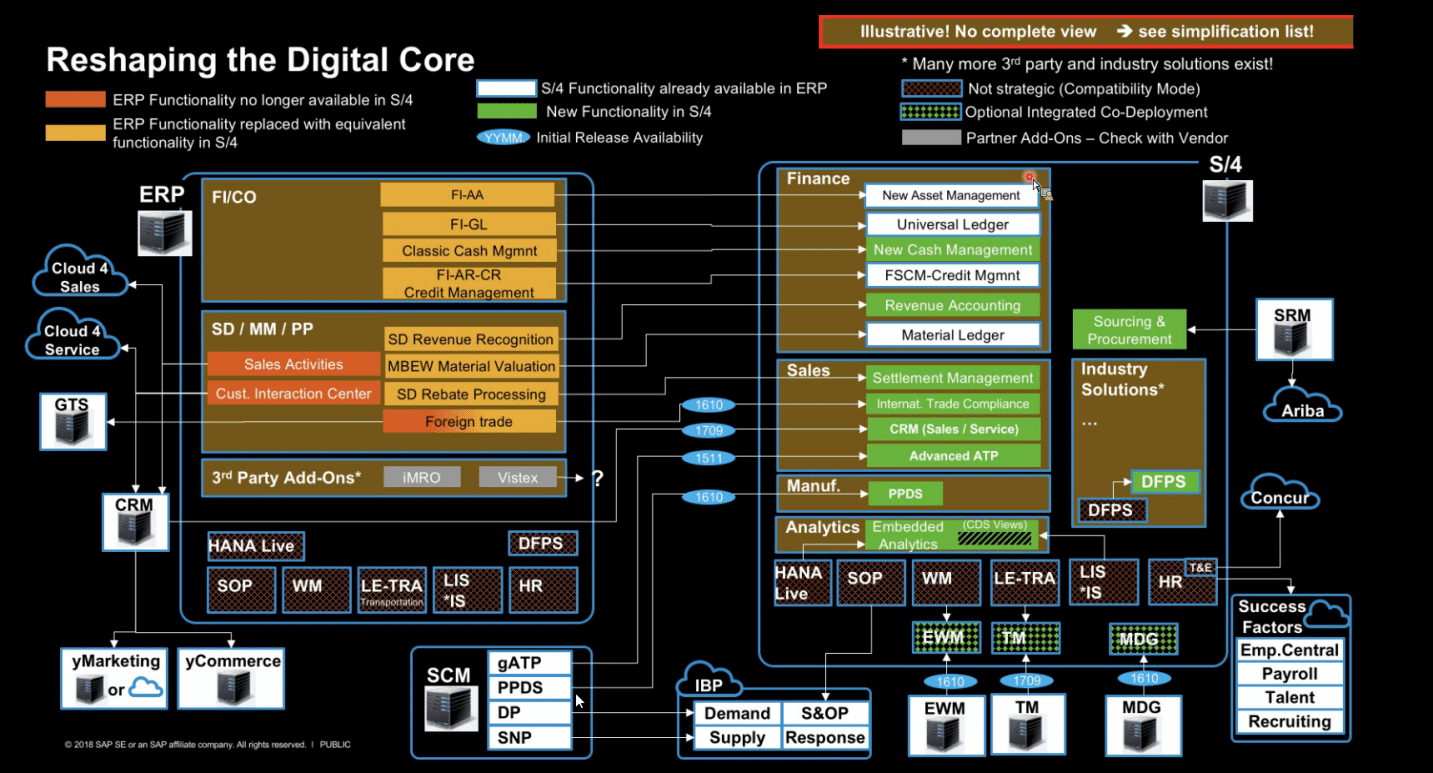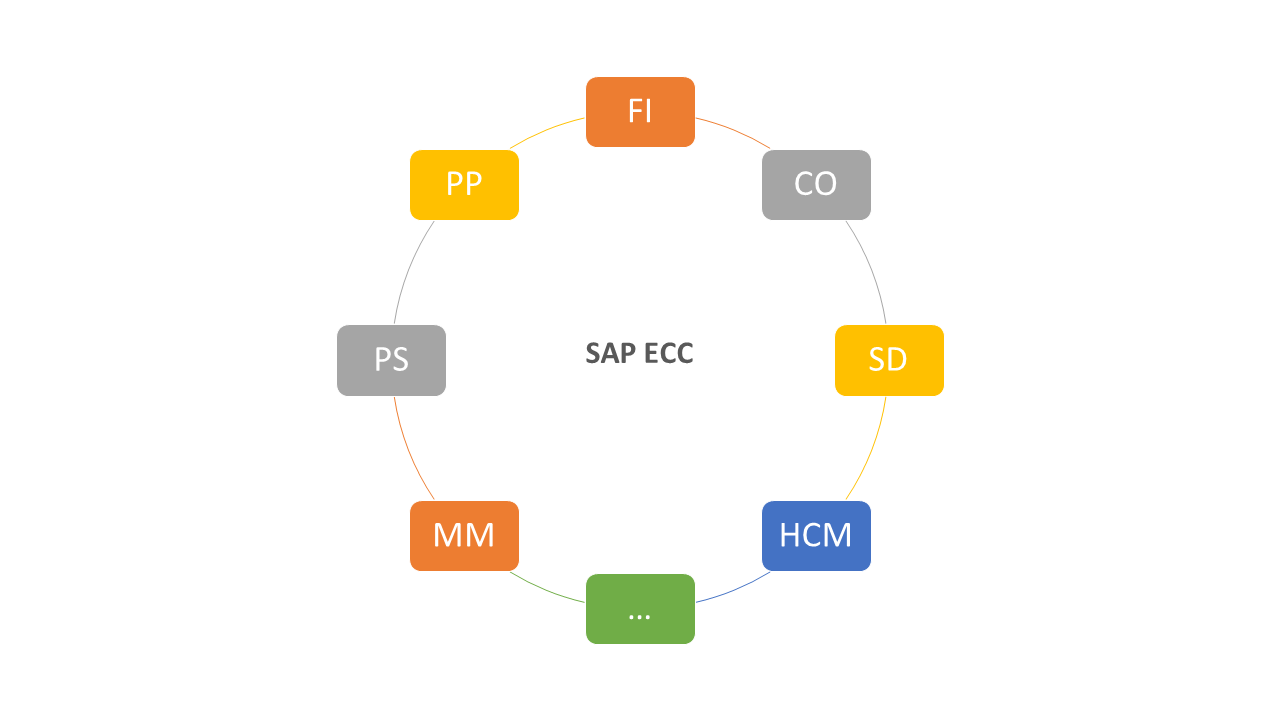
While ECC runs on third-party database systems such as Oracle, S/4HANA relies on the SAP in-memory database. The most important difference between S/4HANA and ECC is the database they use.

S/4HANA, launched in 2015, provides an award-winning UX called SAP Fiori, along with a host of application and use case-specific benefits. SAP rebuilt their ERP solution, SAP ECC, from the ground up to take advantage of HANA’s performance and innovative data models. Dividing S/4HANA migration into two separate projects enables companies to generate quick ROI, while minimizing disruption and risk. Customers also have the option of moving to Suite on HANA and then upgrading to S/4HANA later. Moving to Business Suite on HANA is the first step in an S/4HANA migration. When you move SAP Business Suite from a third-party legacy database to HANA, you’re running SAP Business Suite on HANA. For example, companies can react to market conditions based on up-to-the-minute data, rather than relying on the last quarterly reports. HANA design innovations such as in-memory computing and a simplified data structure markedly improve performance, leading to higher productivity, real-time visibility, and better use of analytics. It is the go-forward foundation for running SAP Business Suite. Released in 2010, SAP HANA is an in-memory database designed to dramatically accelerate SAP applications and the business processes they support. SAP ERP and ECC are now used interchangeably. In 2004, SAP renamed its core ERP product to SAP ERP Central Component (ECC). It was their first client/server package (which did not require mainframes) and supported a wide variety of operating systems and databases. In 1979, R/2 was released, integrating multiple enterprise functions such as accounting, manufacturing processes, supply chain logistics, and HR. As SAP added additional components, the package was renamed to R/1.

#Sap ecc what is software
It started as a Financial software package called RF in 1973, followed by a Material Management module called RM/1. ECC was designed to run on a third-party database. SAP ECC (also known as SAP ERP) is SAP’s legacy suite of enterprise applications. The SAP Business Suite supports a broad range of processes for finance, human resources, manufacturing, procurement, product development, marketing, sales, service, supply chain management, and IT management. The SAP Business Suite consists of a bundle of modular applications designed to perform essential end-to-end business processes across all industries.

As a leader in SAP managed services, we receive many questions around the differences between SAP’s core offerings, and which would best suit an organization.įor those with a non-technical SAP background, here’s what you need to know about SAP ECC, HANA, S/4HANA and Business Suite.


 0 kommentar(er)
0 kommentar(er)
